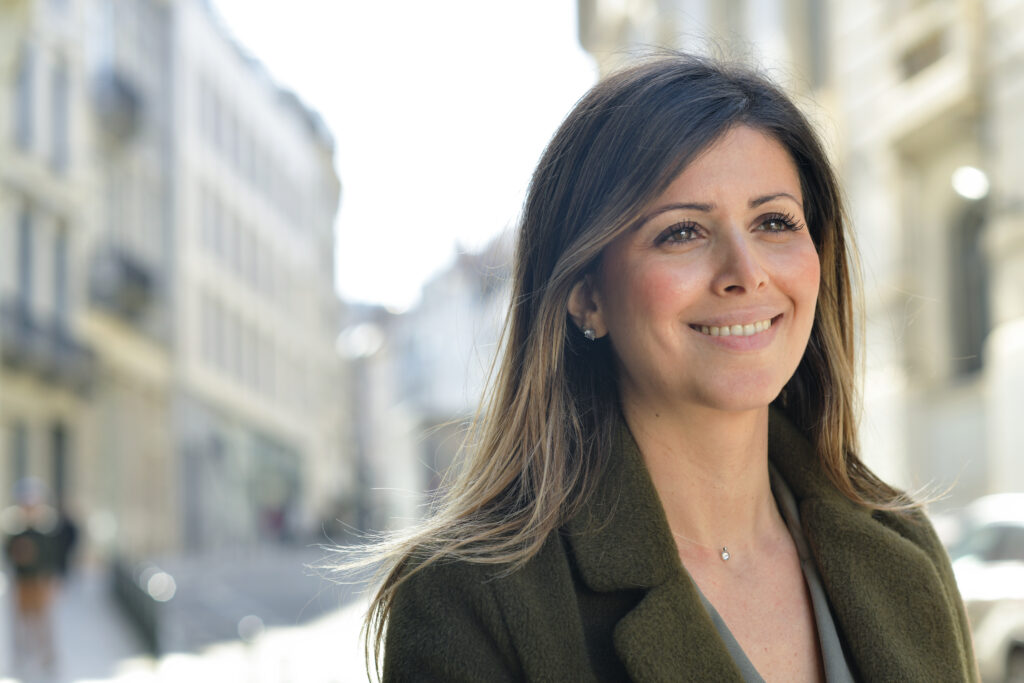We met with Nawal Ben Hamou, Brussels Region Secretary of State for Housing and Equal Opportunities to discuss the Brussels regional LGBTQIA+ inclusion plan that was introduced last February. It includes 35 concrete actions to improve the inclusion of LGBTQIA+ people between 2022-2025.
Since the launch of this plan, evolutions have already emerged, particularly in terms of health (rainbow house of health), accommodation, and asylum (reception center for LGBTQIA+ youth, reception center for LGBTQIA+ asylum seekers). Can you tell us about these ongoing developments?
I will start, first of all, with a word on the inclusion plan for LGBTQIA+ people: In its general policy statement of July 2019, the Brussels Government marked its will to improve the safety and inclusion of LGBTQIA+ people on the territory of the Region. By developing and implementing the Brussels Plan for the Inclusion of LGBTQIA+ People 2022-2025, I wanted to address all aspects of this theme in a coordinated, cross-cutting, transparent and effective way. This is the Region’s second Plan, which follows a thorough evaluation of the first Plan 2017-2020.
This second plan is based primarily on the recommendations of the LGBTQIA+ organizations collected during the evaluation of the previous plan, which identified four areas for improvement: Fight against violence and ensure an effective follow-up policy, particularly in connection with the police and the prosecuting authorities (for 75% of organizations). Implementing awareness and prevention measures (for 71% of organizations). Promote collaboration, networking and cross-cutting actions (for 71% of organizations). Improve regulations (for 67% of organizations).
In terms of innovative projects resulting from the plan, I can tell you about the future shelter that will open its doors this summer. The region lacked accommodation for certain target groups such as young LGBTQIA+ people aged 18 to 25 who are wandering and/or have broken away from their families, most of whom are facing social difficulties, have no social group to which they belong and are facing real or anticipated rejection by their families.
The current thirty or so associative places, although financially supported by the Brussels Region, were not sufficient to cover the demand for emergency reception places for these young people. It is also a fact that the Covid pandemic and the successive confinements have increased intra-family violence and the demand for emergency accommodation.
Already in 2020, the Fundamental Rights Agency estimated that one in five LGBTQIA+ people faced homelessness, with this figure rising to one in three for trans people and almost 40% for intersex people. The recent survey, carried out by the European Federation of National Organisations Working with the Homeless (FEANTSA), also highlights phenomena of marginalisation and exclusion that are often ignored concerning young LGBTQIA+ people.
In order to promote the inclusion of LGBTQIA+ people, especially youth, it is necessary to ensure their physical and psychological integrity and to intervene before they are exposed to the many problems associated with homelessness. The increase in the number of places available through the purchase by the Region of a dedicated infrastructure will make it possible to meet the needs identified in this area. The reception will also be accompanied by professional support in order to promote the reconstruction and emancipation of LGBTQIA+ youth. The development work is underway and the future operator is about to be selected by a jury of professionals. The shelter will officially open at the beginning of 2023, but can already be partially occupied this summer to respond to emergencies.
I’d also like to talk about safety. This week, our partners at Brussels Prevention and Security published the results of an analysis on LGBTQIA+phobic violence in the Brussels Region, after mobilizing unpublished data from a partnership between equal.brussels, Brussels Prevention and Security and the Rainbow House.
In 2020, the Brussels police zones recorded only 34 tickets for acts related to homophobic discrimination. However, the associative sector, as well as the survey carried out by the European Union Agency for Fundamental Rights, show a completely different reality: in Belgium, 66% of the people surveyed still avoid holding hands to avoid being stared at, 27% of the people surveyed avoid certain places in the public space because of the fear of being attacked and 42% of the people surveyed say they were harassed in the year preceding the survey and one in five trans and intersex people were physically or sexually assaulted in the five years preceding the survey.
So there is a real black number of violence and discrimination. In order to have a more reliable idea of these LGBTQIA+phobic acts, we have developed a pilot project to file reports with the RainbowHouse. 42 additional reports, more than the number of complaints filed in the whole Region, were collected through this project financed by equal.brussels and BPS. The objective is to further develop this service.
Unfortunately, all too often, victims of such violence do not file a complaint. Filing a complaint is however an essential act, even if it is sometimes difficult. It is also an important step to formalize the prejudice suffered, to allow the victims to rebuild themselves, to pursue the perpetrators and to make them face their responsibilities. Filing a complaint is also a militant act, determining for the community. Because it is by objectifying and analyzing the phenomenon that we fight it with more efficiency. And it is on the basis of a precise monitoring of these complaints that we will be able to carry out effective prevention policies, but also to better train and coordinate the intervention of the police services.
Victims mainly talk about a lack of trust in the police or feelings of shame or fear. We are working on the issue of reception in police stations and training of officers within the 6 police zones in the region, as provided for in our LGBTQIA+ Inclusion Plan that I adopted last February. Fighting against under-reporting and improving the monitoring of complaints are key actions of this Plan.
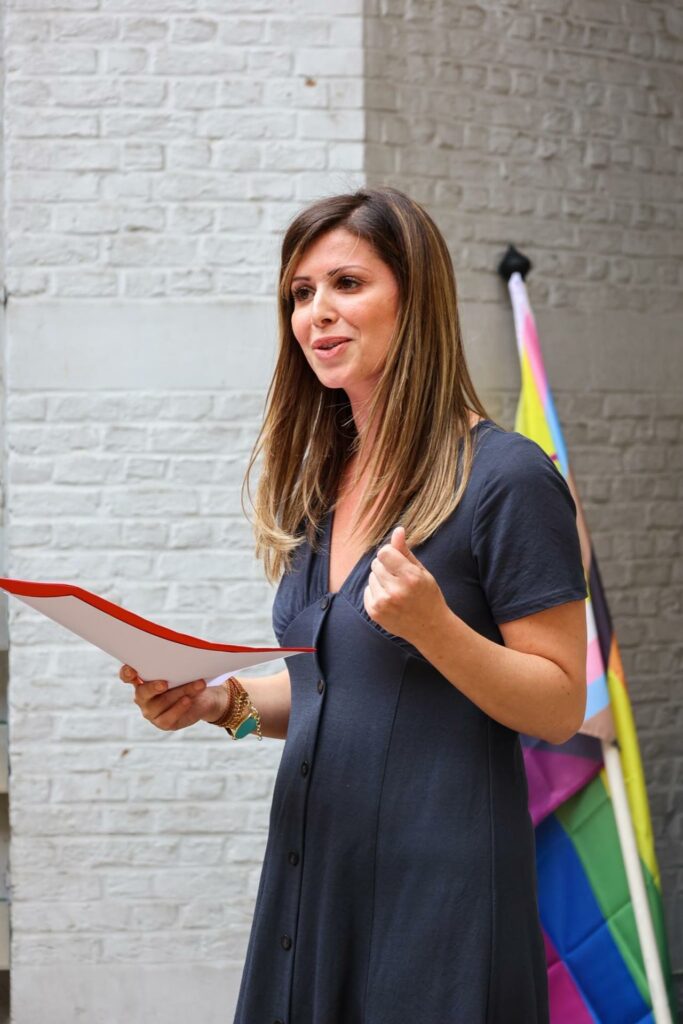
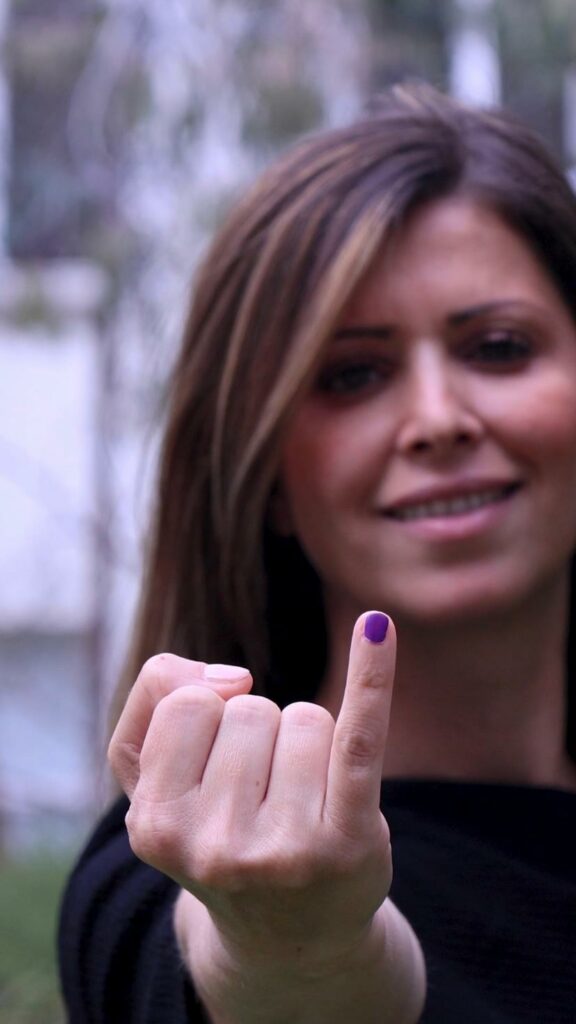
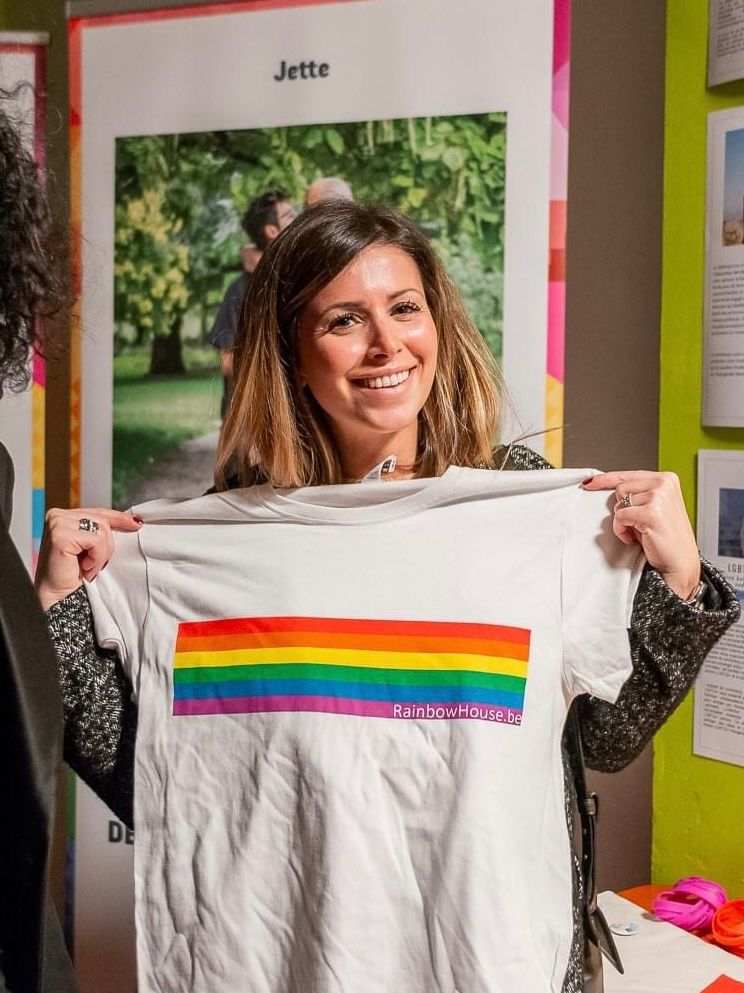
The amount of 300,000€ was announced at the same time as the plan to ensure financial support for the LGBTQIA+ association sector. How will this be translated in concrete terms?
The 4th action of the LGBTQIA+ Inclusion Plan provides for increased financial support for the LGBTQIA+ nonprofit sector, which will enable LGBTQIA+ nonprofits to carry out several new quality projects.
My administration for Equal Opportunities, equal.brussels, launched a first call for projects “equal opportunities” on February 1st for a global amount of 1,5 million euros, of which 230.000€ were attributed to projects responding to the LGBTQIA+ theme. This one was aimed at nonprofits proposing projects that raise awareness and involve a large public in different aspects of the regional policy for Equal Opportunities. The other themes were gender equality, the fight against racism, taking into account handicap, single parenthood and violence against women. The selected projects have all been objectively weighted by equal.brussels. I would like to take this opportunity to remind our associative partners that a second round of call for projects will be launched on June 1st.
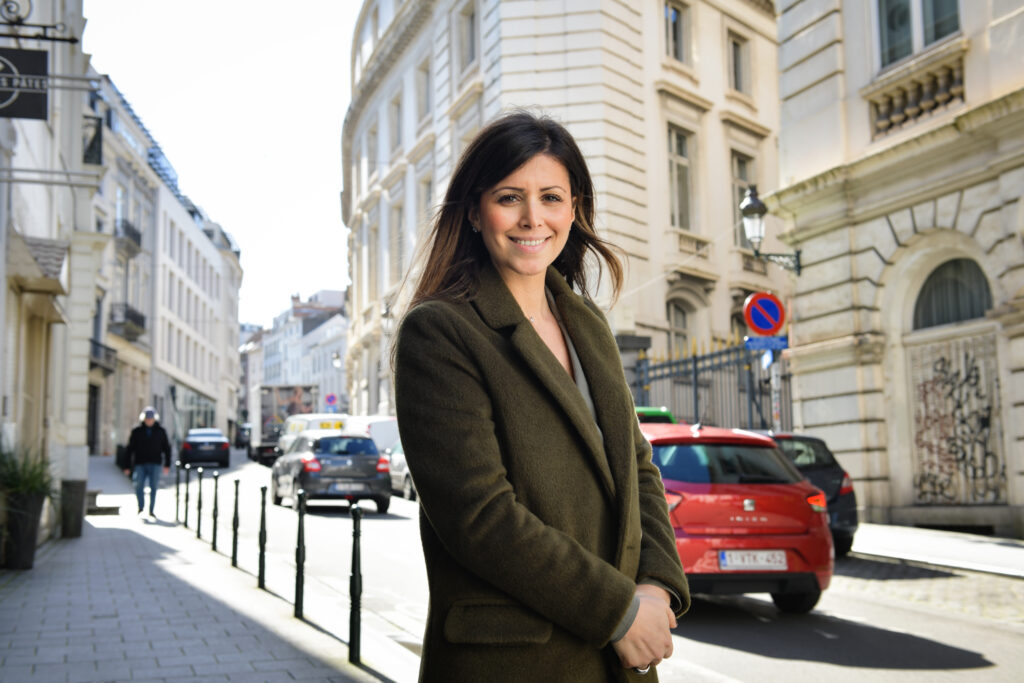
Regarding the projects supported during the first call for projects, which closed on March 31:
We support the research project #wecare of the Observatoire du sida et des sexualités, which aims at evaluating the relevance of creating a specific health center for people of diverse genders and sexualities, a health center that would be inclusive and intersectional. Interviews were conducted with health professionals and the LGBTQIA+ organization’s sector to better understand the needs and expectations of patients. This research work will feed the MACS project led by Ex-Aequo, which will temporarily take place in the Grandes Carmes project, in the heart of the Saint-Jacques district.
Another example I wanted to share with you is the support to the Nyangazam project: as we know, Belgium is a land of welcome for exiles fleeing their country because of their sexual orientation. These refugees are still too often confronted with identity issues, but also with administrative and integration difficulties due to their specific status. This artistic project of theater and dance aims to raise awareness and highlight the suffering experienced by these people far from their country. The choreographer will propose a show mixing dance, theater, video and song in an interdisciplinary performance with 4 dancers of African origin expressing in turn a mutual attraction mixed with guilt about the judgment made by the society first African, and then European.
We also support the training project of the ASBL Epicentre, which is divided into 3 stages. First of all, the organization of discussion groups around the issue of global and inclusive health among young people, part of a gender or sexual orientation minority/LGBTQIA+, of diverse socio-cultural origins, around their needs and experiences related to their health (physical, mental, psychic, social, etc.) and to its social determinants. Then, the organization of discussion groups with health professionals who will share their practical experiences, difficulties and professional questions related to the theme. Finally, at the end of these meetings and cross-examinations, the “Expert.es de ma santé” project will result in a training course for health professionals, the content of which will bring together the lessons learned from these discussion groups.
There has also been a lot of talk about the HORECA sector and the nightlife world in recent months (Haron Zaanan’s testimony, Balance Ton Bar). How do you plan to ensure respect and safety for LGBTQIA+ people in these types of establishments?
The treatment of Haron Zaanan by this Horeca establishment is abject and intolerable, we can no longer accept this type of behavior inherited from another time. We are in 2022, and wether this establishment accpet it or not, we all have the right to dress as we want without having to expose ourselves to the reproachful judgment of some bigots.
We are in 2022, we are no longer in the Middle Ages, in case some people have not yet understood! And this applies to all the people of Brussels: women, men, LGBTQIA+ people and all minorities as well.

The 28th action of the plan aims to make the tourist, cultural and nightlife sectors more inclusive. In this context, we will carry out positive and visible actions to spread and reinforce the feeling that everyone is welcome in the Brussels public space, regardless of their gender, sexual orientation and/or sexual characteristics. We will also organize an “LGBTQIA+ welcoming day” and an LGBTQIA+ inclusion award. Training for staff in this sector is also planned.
Let me also refer to the call for projects “Gender-based harassment and sexual violence in the nightlife” closed on April 30th, which targets large-scale initiatives and collaborations between Brussels organizations and actors of the sector that aim to make establishments safer, more inclusive and caring.
The new campaign “#sharethecolor” which follows from the first action of this plan was completed by equal.brussels and is being broadcasted on a large scale right now. How did you prepare this campaign? Do you already have any feedback about this campaign during this month of Pride?
For the 2022 edition of the #sharethecolor campaign, equal.brussels called on LGBTQIA+ people to co-construct and spread its message of awareness and support. This year, the focus was on the inclusion of LGBTQIA+ people in the Brussels neighborhoods. I wanted to target a wider audience in the heart of the different neighborhoods where LGBTQIA+ people live and work rather than limiting myself to the center of Brussels-City where the LGBTQIA+ public space and social life is more visibly concentrated.
#sharethecolor is based on 4 objectives:
- Fighting stereotypes and breaking taboos specifically affecting LGBTQIA+ people
- Promote respect for the diversity of sexual orientation, gender identity and sexual characteristics
- To assert the rights of victims of LGBTQIA+ discrimination, harassment or any form of violence by enabling them to take ownership of the public space and empowering them
- To raise awareness among witnesses of violence and discrimination by offering them the opportunity to become real allies
The posters are everywhere in the city, as you may have noticed. They can be found at metro stops and on the sides of STIB streetcars and buses. The campaign is also available on social networks in the form of 8 authentic 15-second testimonials – those of Chloé, Louka, Emiel, Elliot, Nick, Mavi, Cannelle and Monia – published via Facebook, Instagram and Youtube.
The first feedbacks are very positive, we see many selfies where participants display their colored nails. The requests to have pots of nail polish delivered are exploding and I am very happy about that.
In recent weeks some Flemish politicians (Vooruit, NVA, CD&V) have raised the issue of diversity in Brussels. Do you think that this great diversity in Brussels is more of an obstacle or an opportunity to work towards the inclusion of LGBTQIA+ people?
This type of comment, which borders on racism, is the well-known prerogative of conservatives and other enemies of diversity. I refuse to read the sociology of Brussels through this too narrow prism. The diversity of our region is a strength, not a weakness. Diversity allows different communities that do not seem to have much in common to meet, to talk to each other, to get to know each other better.
It is precisely because of this that we can say that Brussels is an inclusive region. There are, of course, and as everywhere, problems related to the inclusion of LGBT+ people in their neighborhoods, but this has nothing to do with Brussels’ diversity. It is only a question of education and openness.
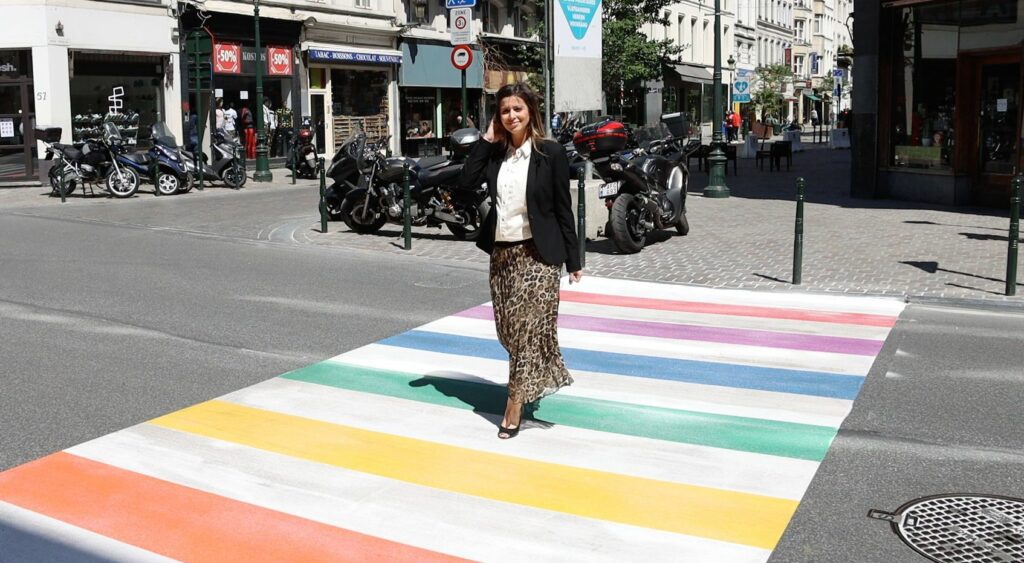
You may also like
-
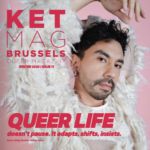
The New KET Is Out: Queer Brussels Keeps Moving
KET Magazine Issue 11 is out now and available in LGBTQIA+ safe spaces across Brussels,
-

Brussels Art Guide 2026: Mapping a Vibrant Contemporary Scene
Brussels is once again putting its contemporary art scene in the spotlight with the new
-

What is Sex-Positive Belgium?
Sex-Positive Belgium is a growing, real-life community of open-minded people who embrace a sex-positive philosophy. It welcomes
-

“Bi+ Equal: Europe’s First Platform Uniting Bi+ Communities Across Borders”
Bi+ Equal is the first-ever bi+ structure at the European level, a new platform created
-

“From Borders to Belonging: How Arc-en-Ciel International Guides LGBTQIA+ Migrants to Safety and Community”
Arc-en-Ciel International Rainbow (AIR) is an online platform created for and with LGBTQIA+ migrants, refugees

